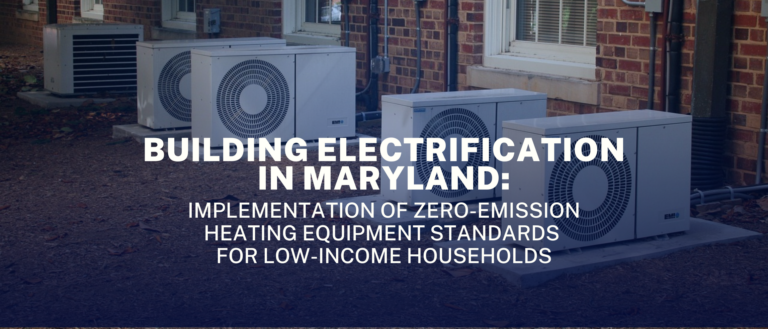This commentary was originally published by The Regulatory Review. Reprinted with permission.
The Congressional Review Act (CRA) provides the U.S. Congress with an expedited procedure to review and potentially overturn final rules issued by federal agencies. Despite being touted as a critical avenue for congressional oversight, the CRA is often deployed as a partisan tool that replaces agency expertise and democratic consideration with political maneuvers and slim voting majorities. The use of the CRA in the current Congress so far has shown us how easy it is to misuse “resolutions of disapproval”—the specialized form of legislation it creates—both in numbers and the scope of its application.
In a recently published analysis, the Center for Progressive Reform takes stock of how Congress has used the CRA in 2025 to understand how the CRA fails as a mechanism for reinforcing constitutional checks and balances between the executive and legislative branches.
Since the current Congress convened, President Donald J. Trump has signed 16 CRA resolutions into law, which represents approximately one out of five of all the resolutions that have been introduced during this period. Although this equals the total number that became law during the first Trump Administration, legislators were noticeably more aggressive in their deployment of the CRA during this Administration: Republicans targeted 47 different rules compared to 36 in 2017. Significantly, the rules that were targeted concerned policy areas marked by particularly strong partisan disagreement: 22 environmental or climate rules and 17 consumer protection or financial rules. These two categories alone accounted for almost 73 percent of targeted regulations.
According to our analysis, those regulations that were repealed followed years of detailed and nuanced research and public engagement of almost four years on average. This contrasts with the speed and binary nature of the CRA’s procedures. Those resolutions that became laws spent, on average, just under 82 days under consideration in Congress. Moreover, the CRA’s truncated procedures afford few meaningful opportunities for debating the policy merits of the resolutions. Similarly, they bar lawmakers from considering more surgical revisions to rules in lieu of striking the whole thing down, lock, stock, and barrel.
Significantly, in-depth analysis of the rules that were repealed undermines any serious argument that the CRA is a crucial tool of congressional oversight that advances our constitutional system of checks and balances. The most controversial of the resolutions—the three California Clean Air Act waivers—are especially instructive, since they required an illegal expansion of the CRA’s scope to accomplish. Critically, the resolutions did not address what conservative opponents of those measures claimed was the core of the problem: that California should not have the effective authority to set fuel economy standards for the nation. The problem still remains because 17 other states have adopted California’s zero-emission vehicle standards.
From this perspective, these resolutions are best seen as an act of pure destruction rather than an exercise of policymaking primacy that Article I of the Constitution assigns to Congress.
This nihilist quality of the CRA is further underscored by how random and low-stakes most of the rules were that were rescinded through the CRA’s provisions. For example, one resolution targeted a rule that made a small change to the kinds of analyses that offshore energy development projects had to make, and another one repealed a rule limiting the use of motor vehicles in a single national recreation area. Far from being used to discipline a regulatory system that has supposedly come out of balance within our constitutional framework, these resolutions seem more indicative of individual lawmakers’ pet peeves or virtue-signaling.
Another striking feature of many of this year’s resolutions is that they repealed so many rules—six out of 16—that are explicitly required by law. In other words, agencies are still obliged to issue a replacement rule, notwithstanding the CRA’s bar on replacements that are in “substantially the same form.” Yet, Congress has given the responsible agencies zero guidance on what those replacements should look like, beyond this vague, unhelpful limitation. Fulfilling this basic responsibility would seem to be the bare minimum of policymaking responsibility that Article I expects from Congress. Yet, the CRA’s procedures do not require it and, if anything, actively discourage lawmakers from honoring this responsibility.
The CRA embodies other problems that put the public, the environment, and democracy at risk, especially when considering who benefits from this assault on our regulatory system. Financial disclosure data reveal that the sponsors of this year’s CRA resolutions received significant campaign contributions from the very sectors that are set to benefit the most from these rollbacks. For example, Senator Tim Scott (R-S.C.), who received more than $12 million from industries with interests over financial and consumer protection rules, sponsored a resolution that overturned the Consumer Financial Protection Bureau’s rule on overdraft fees.
Given that energy and environmental rules were the most common target of CRA resolutions, it was unsurprising to find that the oil and gas sector was the biggest contributor, having poured almost $8 million in campaign contributions in the past electoral cycle. For example, we found that U.S. Representative August Pfluger (R-Tex.), who introduced the resolution to repeal EPA’s rule imposing a fee on waste products from oil and gas systems—also known as the “methane fee”—received $1.12 million from the oil and gas industry, equal to 23 percent of the total funds Pfluger raised during the last electoral cycle.
The second most common targets were financial and consumer protection rules, where we also observed a strong correlation between campaign contributions to sponsors and CRA resolutions targeting financial and consumer protection rules. Contributions from the securities and investment sector—including stockbrokers, bond dealers, hedge funds, and private investment firms—reached a combined total of over $11.5 million. Other businesses, such as insurance companies, lawyers and law firms, commercial banks, business service providers, and miscellaneous financial firms, contributed more than $16 million combined.
These contributions do not necessarily prove the existence of an explicit or implicit quid pro quo. But the appearance of impropriety they create risks further undermining public confidence in the integrity of our governing institutions, particularly in the current context, where Congress enjoys a dismal approval rating of under 30 percent.
It is tempting to think that the CRA threat in the current Congress is over now that the applicability of the CRA’s unique “carryover provision”—which provided the basis for the vast majority of the rules rescinded so far by enabling the current Republican-controlled Congress and President Trump to use the CRA against rules issued during the last few months of the Biden administration—has formally expired. But that would be a mistake, as conservative lawmakers are continuing to look for other opportunities to target more agency actions from previous administrations.
Much like “zombie fires” that continue to survive underground, the use of the CRA by conservatives will likely seek out older guidance documents that were not submitted for consideration under the CRA on the good-faith but mistaken belief that they did not qualify as “rules.” For example, congressional Republicans already began pursuing this strategy recently for a resource management plan issued by the U.S. Department of the Interior for North Dakota. Similarly, conservative policymakers may seek to further exploit the new precedent from the California Clean Air Act waiver fight to rescind agency adjudications or orders that had previously fallen outside the CRA’s scope.
CRA supporters are right that Congress has an important role to play in overseeing the performance of regulatory agencies. The data we collected, however, makes clear that the CRA is at best irrelevant to this goal, and at worst counterproductive.
By now, we have enough evidence to justify abandoning the CRA experiment. Lawmakers should start developing better tools for supervising and checking agencies that do not put the public, the environment, and our democratic values at risk.
Showing 2,932 results

Federico Holm, James Goodwin | October 16, 2025
The Congressional Review Act (CRA) provides the U.S. Congress with an expedited procedure to review and potentially overturn final rules issued by federal agencies. Despite being touted as a critical avenue for congressional oversight, the CRA is often deployed as a partisan tool that replaces agency expertise and democratic consideration with political maneuvers and slim voting majorities. The use of the CRA in the current Congress so far has shown us how easy it is to misuse “resolutions of disapproval”—the specialized form of legislation it creates—both in numbers and the scope of its application.
Federico Holm | October 15, 2025
Since Day One, the Trump administration has aggressively pursued policy actions that match the recommendations contained in Project 2025. We have been tracking the administration’s actions since February, and our Executive Action Tracker (jointly maintained by the Center for Progressive Reform and Governing for Impact) highlights the speed and effectiveness with which the administration has advanced Project 2025’s goals.

Bryan Dunning, Christopher Stix | October 14, 2025
In the past year, Maryland residents have seen their heating bills skyrocket, which has largely been tied to increased costs of methane gas distribution. These costs are expected to worsen as increased spending on the distribution system must be repaid over the next several decades. At the same time, greenhouse gas emissions from burning fossil fuels in the home contribute substantially to climate change, and pollution from fossil fuel heating also has a substantial impact on residents’ health. In a new report published today, we explore policies designed to tackle these challenges and provide analysis and recommendations on how to make the transition to updated heating technologies and building electrification more equitable and effective for low-income Marylanders.

Minor Sinclair | October 7, 2025
The Presidential Memorandum (NSPM-7) on Countering Domestic Terrorism and Organized Political Violence released last week pushed the United States one step closer to a country where the right of freedom of speech and peaceful protest no longer exists.

Federico Holm, James Goodwin | September 15, 2025
To say that the policy priorities of the Trump administration represent a U-turn from the Biden administration is a severe understatement. The recent release of the long-awaited Spring 2025 Regulatory Agenda — the first of the current Trump administration — provides us with our first concrete picture of just how far the regulatory policy pendulum is going to swing. From climate and energy to public health, the current administration is systematically undermining important advancements achieved during the previous cycle.

James Goodwin | September 3, 2025
Public participation is a defining feature of the modern administrative state. One of administrative law’s functions is to ensure meaningful participation by relevant stakeholders. Importantly, as the public’s expectations of and demands for what participation mechanisms are meant to accomplish have evolved, policymakers and the courts have updated administrative law requirements and doctrines.

Catalina Gonzalez, James Goodwin | August 26, 2025
Last week, the Environmental Protection Agency (EPA) hosted four days’ worth of hearings to gather public testimony on its proposal to rescind the 2009 endangerment finding and the suite of existing greenhouse gas (GHG standards for cars and trucks that the finding supplies the legal justification for. The vast majority of the participants testified in strong opposition to the proposal, and included a broad cross-section of our society: faith leaders; a high school student; community organizers; and concerned grandparents.

Daniel Farber | August 21, 2025
Not that long ago, conservatives demanded that the government balance costs and benefits. They still do, but with a twist: They demand special limits on consideration of environmental effects. But that makes no sense. Whatever rules we have about costs should apply to all types of costs, and the same with benefits. The result of skewing the analysis is, not surprisingly, that we get conservative results more often.

James Goodwin | August 12, 2025
For conservatives and many political centrists, there was a clear villain to blame for congressional dysfunction: Chevron deference. Repealing this legal doctrine — which generally called on federal courts to defer to agency interpretations of ambiguous statutory provisions they are charged with implementing — would inaugurate a new Golden Age of Article I primacy and productivity, they claimed.